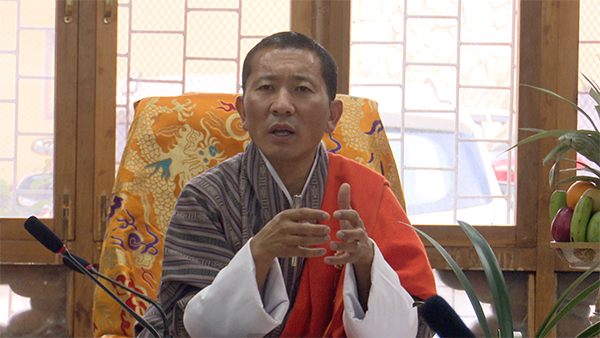 Prime Minister Dr Lotay Tshering emphasized on the importance of Technical and Vocational Education and Training (TVET) while reviewing the Annual Performance Agreement (APA) of Ministry of Labour and Human Resources (MoLHR) yesterday. He said TVET should be a primary focus of the labour ministry and should receive extra attention.
Prime Minister Dr Lotay Tshering emphasized on the importance of Technical and Vocational Education and Training (TVET) while reviewing the Annual Performance Agreement (APA) of Ministry of Labour and Human Resources (MoLHR) yesterday. He said TVET should be a primary focus of the labour ministry and should receive extra attention.
Presenting the ministry’s APA, the secretary said they have identified nine major activities for this year.
The major activities include professionalising TVET system, facilitating assessment and accreditation of courses and TVET institutes. In line with it, the agency also plans to establish and expand the use of TTI and Institutes for Zorig Chusum facilities and diversify TVET courses in the country.
Besides establishing and implementing Employment Responsibility System the labour ministry also looks forward to implementing critical skills training, enhance employability, enforce and implement Employment Act 2007, and monitor flagship programmes.
Going through the annual targets set by the ministry, the prime minister asked the office to work more on transforming and improving the TVET sector.
“You have to put in activities which will help the TVET instructors to learn more and ultimately teach better, like offering them advance diploma course outside. At the same time, if something like curricula, infrastructure, number and quality of lecturers related success indicators could be placed then we will see TVET improving vividly,” the Prime Minister Dr Lotay Tshering said.
The gathering also saw discussions with regard to offering TVET as one of the optional streams after Class X, ensuring continuity of the course after Class XII, employability of TVET graduates, revisiting curricula of TVET at various levels in consultation with the education ministry and the Royal University of Bhutan.
Of the total budget of over Nu 1bn received by the labour ministry for the 2019-20 fiscal year, TVET sector has received a lion’s share of more than Nu 500 M to strengthen TVET system and improve access, quality and relevance through infrastructural expansion and capacity building of faculties.









